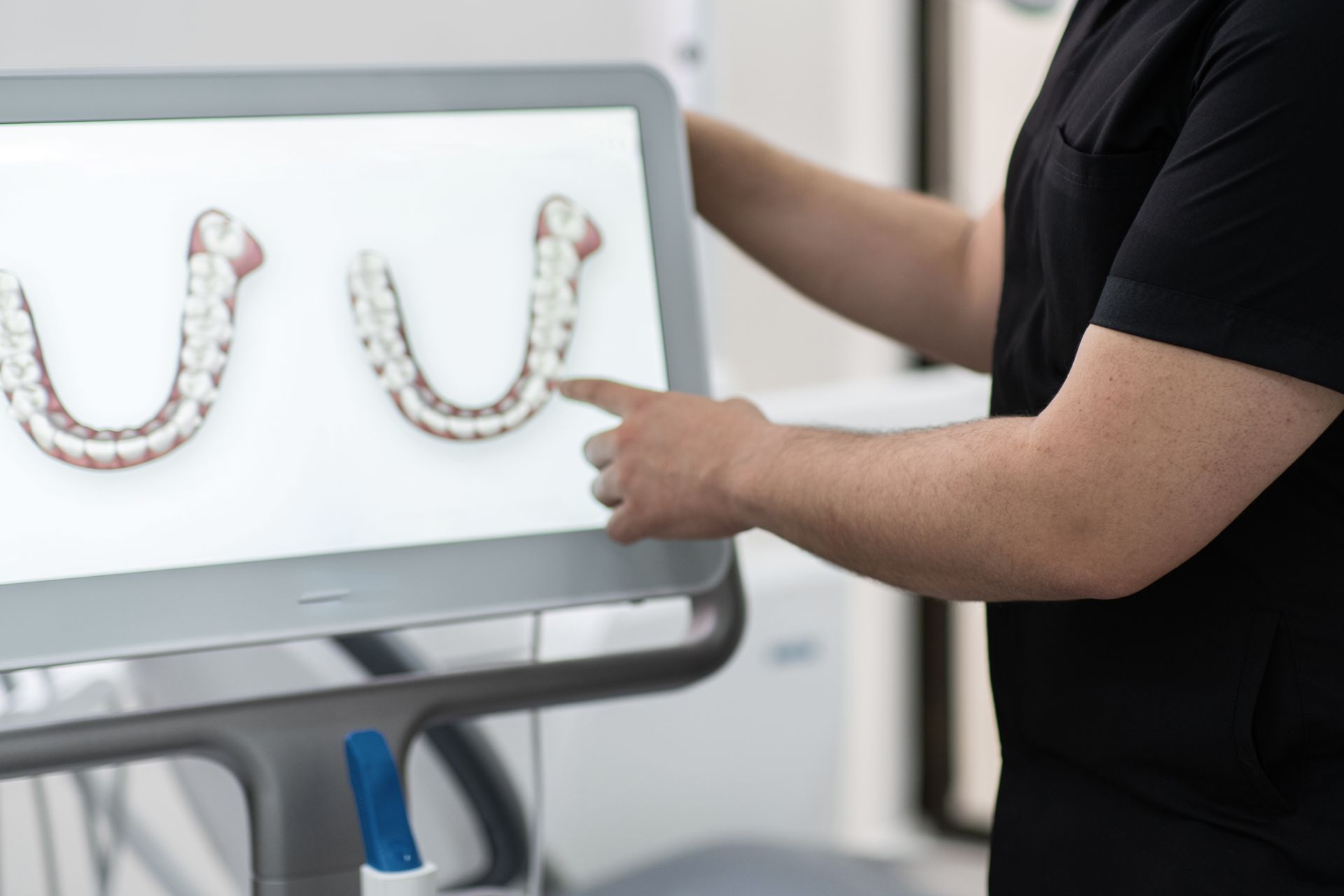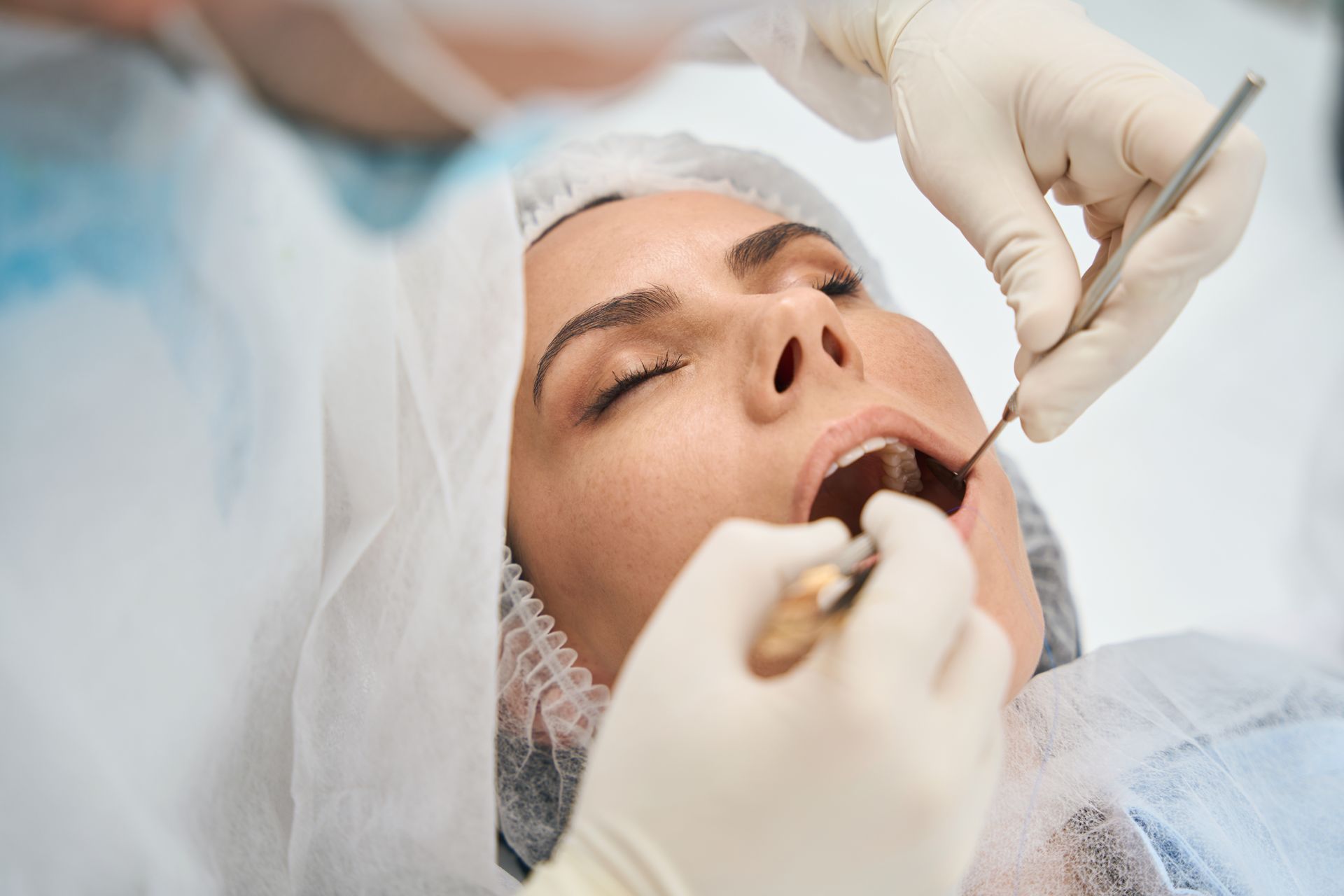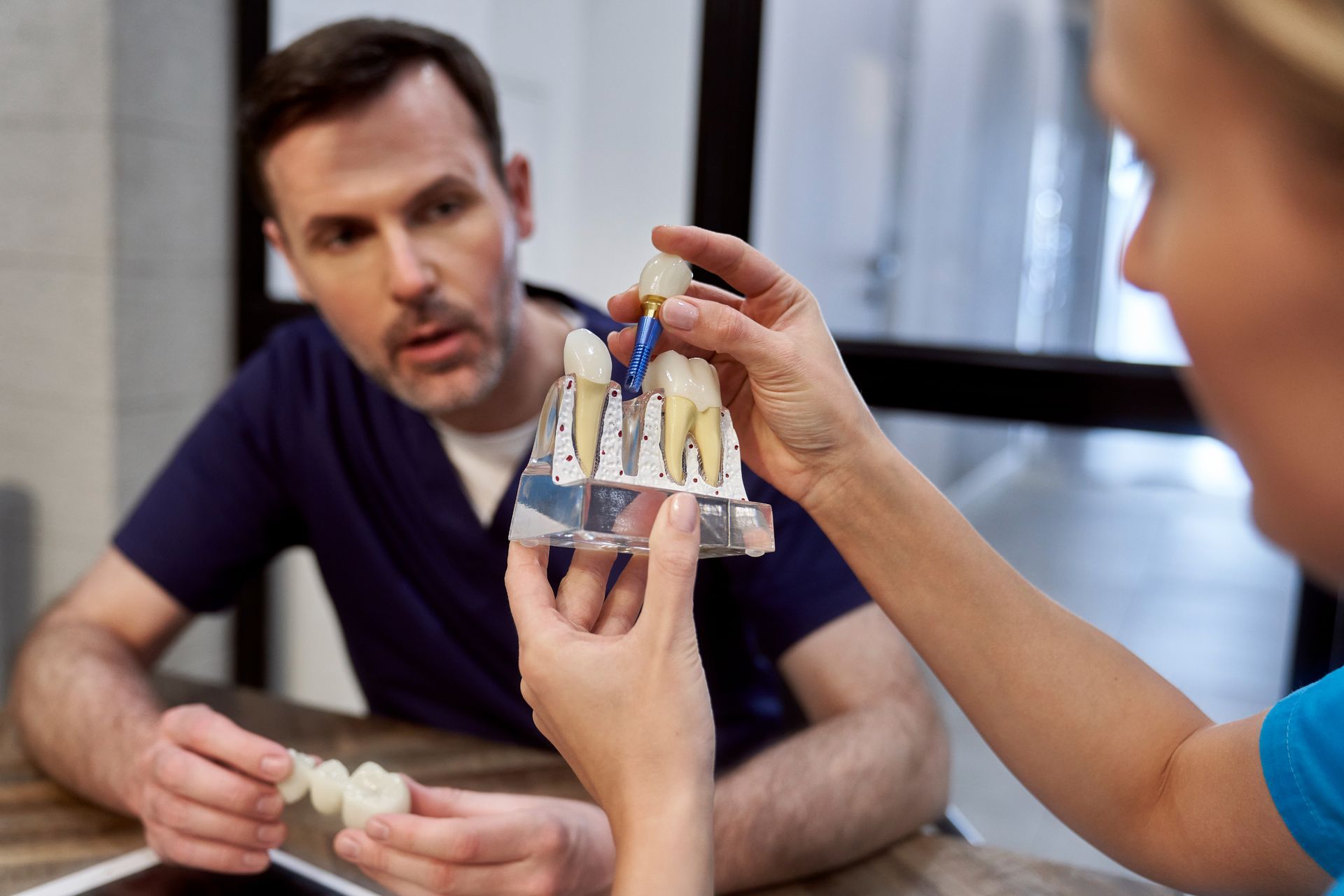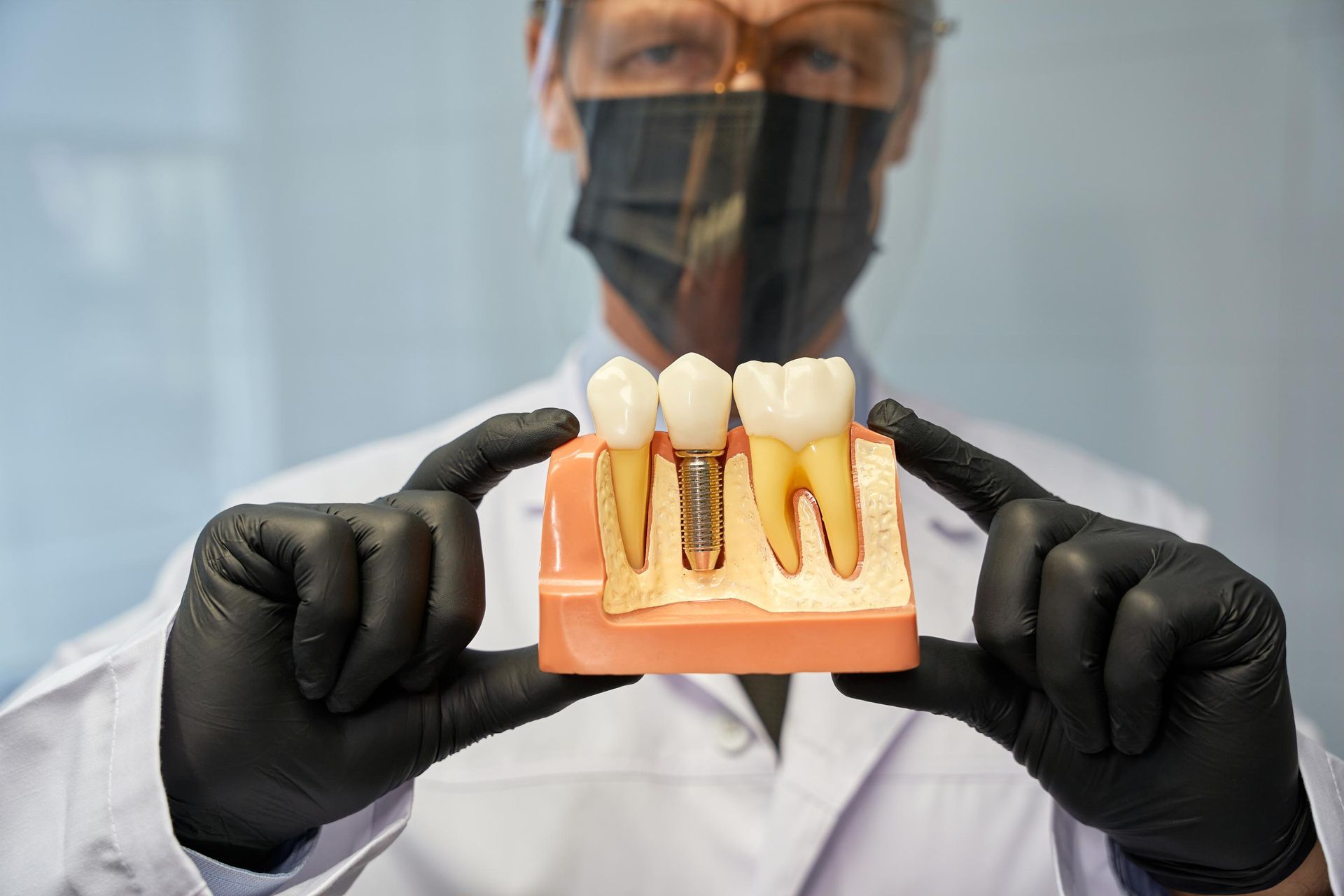Understanding Bone Loss and Dental Implants: Key Considerations and Solutions
Understanding Dental Implants & Bone Health
Dental implants are a modern solution for replacing missing teeth, offering a durable, stable, and aesthetically pleasing alternative to traditional dentures and bridges. Consisting of a titanium post surgically implanted into the jawbone, topped with a custom-fabricated crown, dental implants mimic the natural structure and function of original teeth. However, the success of these implants heavily relies on the health and density of the jawbone. Adequate bone density is crucial because it provides the necessary support for the implant, ensuring its stability and longevity. Without a healthy bone structure, the implant may not properly integrate with the jaw, leading to complications or failure. Thus, understanding and maintaining bone health is integral to the dental implant process, underscoring the need for thorough assessments and possibly preparatory treatments such as bone grafts to achieve optimal outcomes. At Orlando Lifestyle Dentistry, we emphasize the importance of bone health in ensuring that our patients achieve not only the smile they desire but also the functional benefits that come with well-supported dental implants.

The Role of Bone Density in Dental Implant Stability
Bone density is crucial for the success of dental implants. The jawbone needs to be dense enough to securely hold the titanium post of the implant. This is important because the bone needs to grow around and bond with the titanium, a process known as osseointegration. When the jawbone is dense and healthy, it helps the implant stay stable and function just like a natural tooth when you chew.
However, if the bone density is not adequate, it can lead to problems with implant stability. The implant might not bond well with the bone, causing it to become loose or even fail. In such cases, additional treatments like bone grafting might be necessary to build up the bone and provide a solid base for the implant.
Common Causes of Bone Loss Affecting Dental Implants
Bone loss in the jaw can significantly affect the success of dental implants. Understanding the factors that lead to this condition is crucial for anyone considering dental implants. Here are some common causes:
- Periodontal Disease: Gum disease can damage the gums and erode the bone that supports teeth, leading to bone loss that complicates implant placement.
- Tooth Loss: Missing teeth cause the jawbone to lose stimulation from chewing, leading to bone deterioration over time. The jawbone needs regular stimulation to maintain its density and volume.
- Osteoporosis: This condition reduces bone mass and density throughout the body, including the jawbone, which can weaken its ability to support dental implants.
- Trauma and Injury: Injuries to the face or jaw can disrupt blood supply or directly damage the bone, affecting its ability to support implants.
- Age: As we age, natural decreases in bone density can occur, making the bone less dense and more brittle, which might complicate the integration of dental implants.
Evaluating Bone Quality: Essential Steps Before Dental Implant Surgery
Before you can get dental implant surgery, there are a few important steps that need to be done to make sure everything goes well. First, your dentist will check the health of your jawbone. This is done using special X-ray pictures or scans that let the dentist see if your bone is strong enough to hold the implants.
Next, they do a bone density test. This test tells how tough and strong your bone is. It's important because the implant needs a strong bone to attach to and stay in place. These steps help your dentist know if you need any extra care, like a bone graft, which makes your bone stronger and ready for the implant. Doing all these checks helps dental implant surgeries be successful and your new teeth feel just right.
Innovative Solutions: Bone Grafting for Dental Implant Preparation
When someone needs dental implants but their jawbone isn't strong or big enough to hold them, we have a special way to help called bone grafting. This is like giving the jawbone a little boost so it can support the new teeth.
There are a few different ways to do this:
- Autografts: This is when we take a small piece of bone from another part of the person's body, like the chin or hip, and use it to build up the jawbone.
- Allografts: Here, we use bone from a donor. This bone is cleaned and made safe to use, so it fits well and helps make the jawbone stronger.
- Synthetic Options: These are man-made materials that work just like real bone and help make the jawbone thicker and stronger.
The bone grafting process involves putting the chosen bone or material into the jawbone. Over time, this helps the jawbone grow stronger and bigger. This is really important because it makes sure the dental implants will stay in place and work just like natural teeth. Bone grafting helps lots of people get strong, healthy teeth, making it easier for them to eat, talk, and smile.
Options for Severe Bone Loss
When someone has severe bone loss in their jaw, it can make it tricky to get dental implants right away. But don't worry, there are some good options to help fix this! One common way is using bone grafting, where we add new bone to the jaw to make it stronger. Sometimes, we take a little bone from another part of your body or use special bone from a donor or even man-made materials that act just like real bone. Another cool option is called zygomatic implants. These are special longer implants that go into a different part of your jaw that usually has more bone. This way, even if there's a lot of bone loss, you can still get strong teeth that are held firmly in place. These options help make sure everyone can have a healthy and happy smile, no matter how much bone they've lost
The Dental Implant Procedure: What Patients Can Expect
Getting dental implants is a process that starts with a visit to the dentist and ends with a brand new smile. Here’s what you can expect along the way:
- Consultation: First, you'll meet with your dentist to talk about your teeth. They'll check your mouth and discuss what needs to be done. Sometimes, they might need to do a little extra work to make sure your jawbone is strong enough for the implants.
- Implant Surgery: Next, you’ll have the surgery where the dentist puts a small metal post (like a screw) into your jawbone. This part is really important because it's what your new tooth will attach to.
- Healing Time: After the surgery, you need to give your body time to heal. This can take a few months. During this time, the metal post becomes really strong and sticks to your bone so it won’t move.
- Getting Your New Tooth: Once everything is healed, you go back to the dentist, and they put on your new tooth. It looks just like your other teeth!
Tips for Getting Ready:
- Eat Soft Foods: After your surgery, eat soft foods that are easy to chew.
- Keep Your Mouth Clean: Brush and floss your teeth to keep your mouth healthy.
- Rest: Make sure to relax and not do too much right after your surgery.
With just a few steps and some patience, you'll have a new tooth that looks and feels great!
Maintaining Dental Implants: Long-Term Care and Management
Taking care of your dental implants is a lot like taking care of your regular teeth, and it's very important to keep them clean and healthy. Here are some simple tips to help you take care of your implants:
- Brush and Floss: Just like your natural teeth, you need to brush your dental implants at least twice a day and floss once a day. This helps to keep food and germs away from your implants and gums.
- Regular Check-ups: Visit your dentist regularly, just like you would with your natural teeth. Your dentist can check to make sure your implants are doing well and help clean places that are hard to reach at home.
- Eat Healthy Foods: Eating healthy helps keep your whole mouth healthy, too. Try to eat lots of fruits and vegetables and avoid too much sugary food.
Taking good care of your dental implants helps them last a long time and keeps your whole mouth healthy. It also helps prevent bone loss around your implants, which is really important to keep them strong and in place. Just remember, a little care goes a long way!
Enhancing Life Quality with Secure Dental Implants
Secure dental implants can greatly enhance the quality of life, restoring not just the functionality of natural teeth but also boosting confidence and overall well-being. Addressing bone loss is crucial for the success of dental implants, as a healthy, strong jawbone is essential for supporting these advanced dental solutions. Ensuring the bone is adequately prepared to receive and integrate with implants is a key step that cannot be overlooked.
At Orlando Lifestyle Dentistry, we are committed to providing top-notch care through the use of advanced technology and personalized treatment plans. Our focus on addressing each patient's unique needs, from bone density assessments to customized implant procedures, ensures that our dental implant treatments are not only effective but also tailored to provide the best possible outcomes. With Orlando Lifestyle Dentistry, patients can trust that they are receiving care that leverages the latest advancements in dental technology, aimed at improving their oral health and enhancing their lives with secure, long-lasting dental implants.











